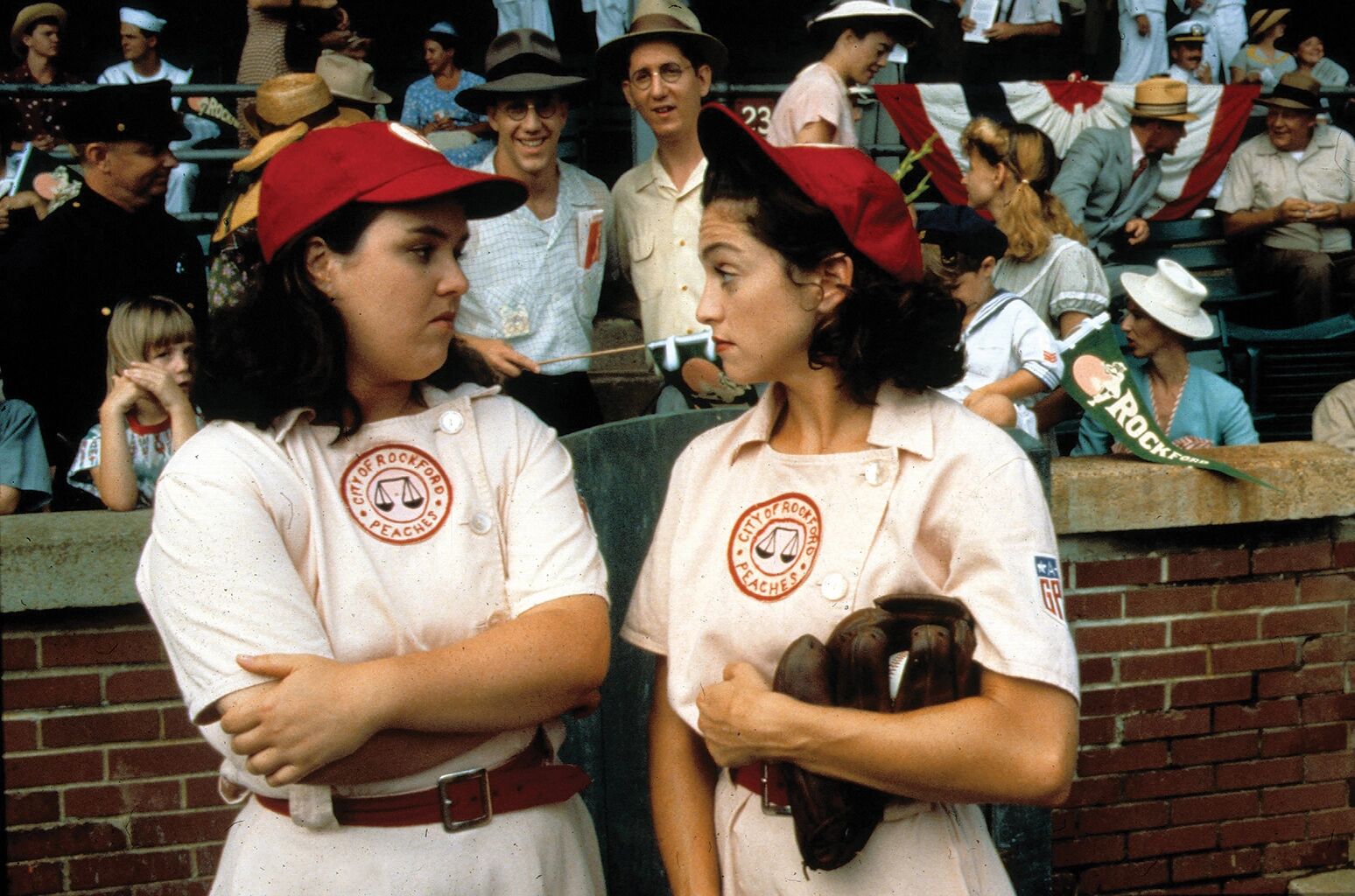
If there’s a category for films that maybe aren’t explicitly queer, but sure do feel like they are, one particular 1992 film that features an all-female baseball league certainly belongs on that list. Beloved by the gay community for its underdog spirit, iconic performances, and yes, Madonna, Penny Marshall’s A League of Their Own is a certified classic, complete with its own behind-the-scenes lore that continues to reveal itself 30 years after the release.
That’s where journalist Erin Carlson’s newest book, No Crying in Baseball: The Inside Story of A League of Their Own: Big Stars, Dugout Drama, and a Home Run for Hollywood, comes in. Carlson spent countless hours interviewing the cast, crew, executives, and even a surviving member of the original All American Girls Professional Baseball League, for a book that’s packed with on-set drama and a deeper look into the making of this Hollywood home run that continues to be celebrated decades after its release – look no further than last summer’s TV adaptation produced by and starring Abbi Jacobson.
We caught up with Erin Carlson to talk about A League of Their Own’s queer legacy, all things Rosie O’Donnell, and Madonna.
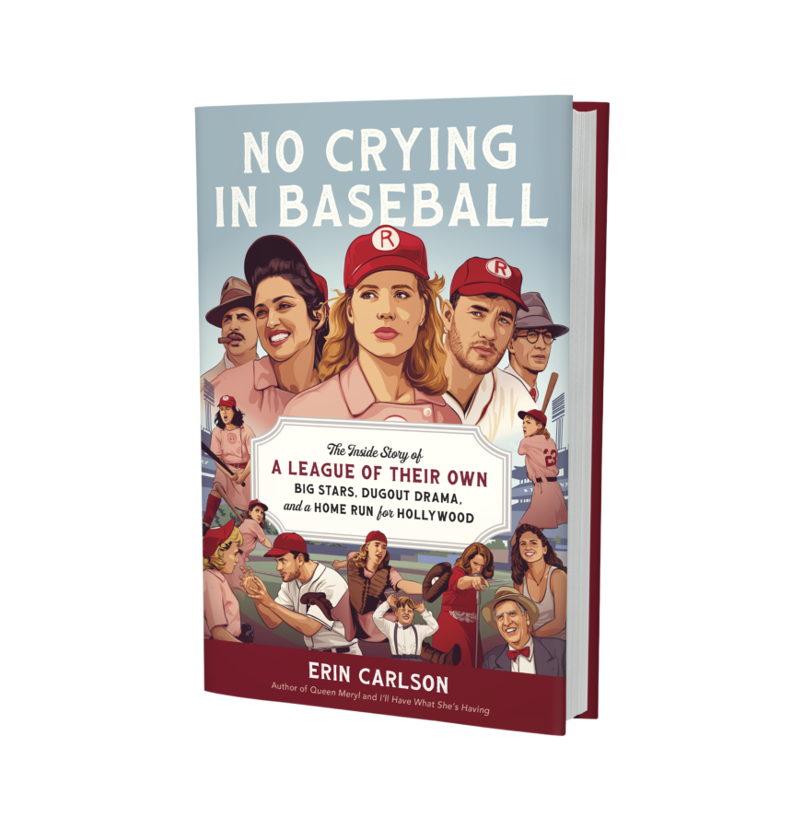
QUEERTY: Erin, thank you so much for joining us. How would you summarize A League of Their Own’s impact on pop culture since its release?
CARLSON: I feel like it’s immeasurable. It’s a genre outlier. It’s a baseball movie, but about an all-female team. That was a rarity back then – it’s a rarity now. And I think that’s why it has endured for so long in the culture: it’s deeply original. It’s deeply novel, but it’s also a really great script…and it’s about something that matters.
I interviewed Abby Wambach, the World Cup Champion, for this book, and she was like, “Oh, yeah, watching this movie inspired me to take up soccer.” She actually told Geena Davis about that, and Geena was like, “Excuse me?” But she saw Dottie Hinson as a competent, confident leader. It was a formative experience for her.
You write about how A League of Their Own is an iconic queer story without necessarily queer characters. Can you expand on that, and talk about its queer legacy?
CARLSON: I read an interview with Abbi Jacobson, who did the amazing Amazon reboot, and what she told the Hollywood Reporter was that nobody’s queer in the film, but it’s something that’s just “in the air.” And I think the scene that best encapsulates that, and Rosie [O’Donnell] talked to me about this…was the scene on the bus where Doris [played by O’Donnell] is explaining why she ended up with her deadbeat boyfriend. But then she’s like, “You know what? I think we’re all alright,” and she rips up her boyfriend’s photo and throws it out the window of the bus. Finally, Doris felt a safe space to be herself. And she had found other people like her…it’s hidden beneath the surface.
When Rosie was doing the monologue toward the end of the shoot, Penny goes, “Rosie, don’t make it a gay thing. Can you not do it like that?” And Rosie was like, “What do you mean? I’m just saying lines.” Rosie understood Doris as Penny could not…Penny was not gay. So Rosie just read the lines, and it just felt authentic to her and to the character.
Rosie told me that she felt the character Doris was gay and in love with Mae, but she didn’t know what to do about that. Rosie also told me that when they met a lot of the original players, a lot of those original players had “partners.” That was erased from A League of Their Own. I feel like Penny Marshall was afraid that acknowledging that history might affect the box office in some way, or might affect the film’s commercial appeal and make it too niche. But that’s not an excuse for erasing the truth of the league. And I think Abbi Jacobson had a lot of guts for centering queer characters and their struggle to be themselves during an extremely homophobic time in America that still resonates today.
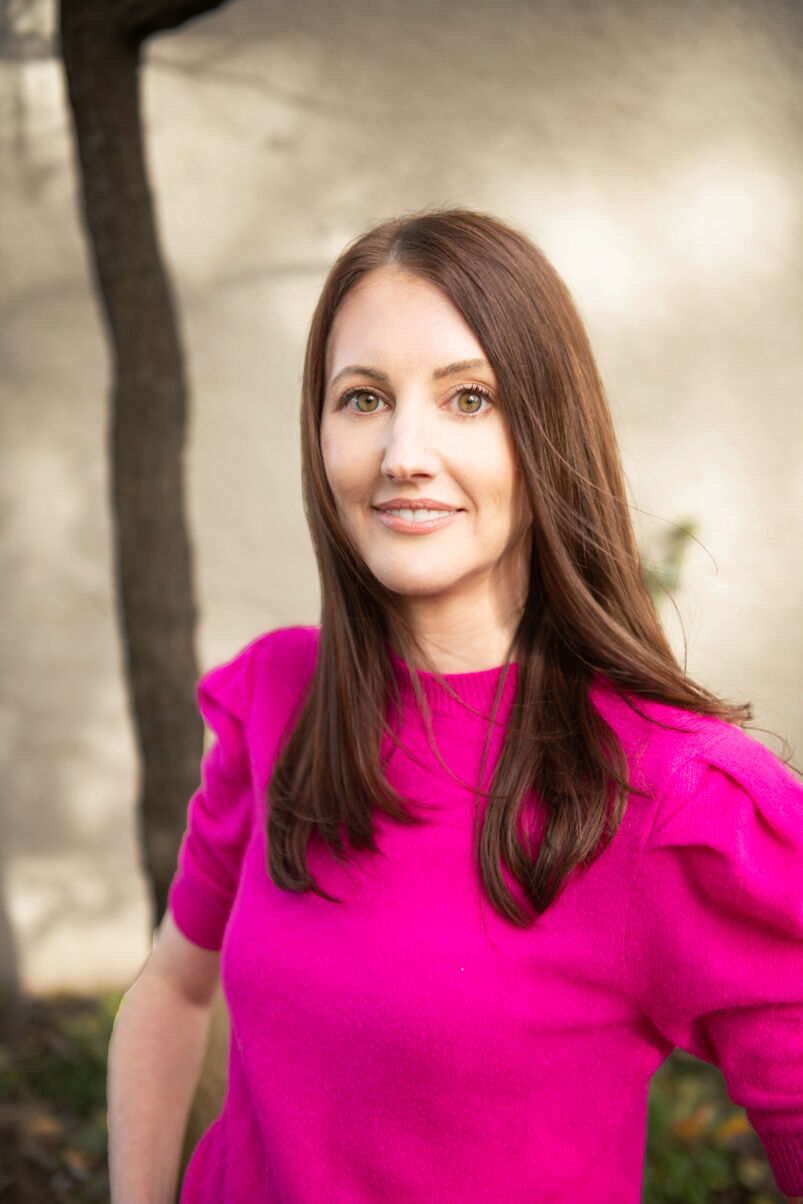
You write about Madonna extensively, including some of her stormy relationships with others on set. Can you talk more about that?
CARLSON: Despite being the most famous and controversial pop star in the world, what she really wanted to do was be a movie star. She was great in Desperately Seeking Susan in the mid-80s – she was basically playing herself. But then she did a few duds, and the word around Hollywood was that Madonna can’t really act. And she wanted to prove everybody wrong and become a good actress. She was willing to do whatever she had to do.
But at the same time, she was “Madonna.” You know, she was that persona. If you got her one-on-one, she could be sweet, but around a big crowd, she really put on that character – she would demand Evian over ordinary water. She could take a while filming takes. I think she was a perfectionist. And she maybe had a little bit of a stage fright that she would never own up to. And I think those other little “Madonna” things – reminding everybody who she was – helped her have more confidence on set where she might not otherwise have confidence, because there was Geena Davis, an Oscar winner who slipped in out in and out of character so easily.
They were behind schedule a lot of the time, so a lot of the actors would sit in their trailers all day and not have anything to do. And Madonna didn’t like that. She didn’t like to stand idle. She would tell people that she had an empire to run. She was in talks to start her own label, her entertainment company, Maverick. She was in talks to play Evita. And she was working on her sex book. So it felt like a waste of her time just sitting there. So one day, she wrapped herself, in Huntingburg, Indiana. She just left and went home. And Penny goes, “Where’s Mo?” And they’re like, “Mo went home.” Penny was furious. She was like, “I’ll write her out of the movie! I’ll make her pregnant.” That got back to Madonna, and Madonna left a very apologetic voicemail on Penny’s answering machine in Indiana vowing never to do it again.
What was the dynamic between Madonna and Rosie?
CARLSON: Penny called them Ro and Mo. She was like, “Rosie, you have to make sure that Madonna likes you,” because they were gonna write bits for them. She’s like, “Rosie, you teach Madonna how to play ball. Madonna, you teach Rosie how to set her hair.” And Rosie was terrified. Well, I wouldn’t say terrified, but you know, at heart she’s a fangirl. Madonna was so huge back then.
And Rosie was like, “How do you do that? How do you get close to Madonna?” So she went to go see Truth or Dare before she met Madonna. And she’s like, “Oh, I understand our connection now. Our connection is that our mothers both died when they were very young of the same disease, breast cancer.” They were both motherless daughters. So when they met, Rosie was like, “You know, I lost my mom too, just the way that you did.” So they were kind of thick as thieves after that. And Rosie was Madonna’s protector in a way. She was like the buffer between Madonna and some people. She was a blunt, funny, larger-than-life New Yorker, so I think she could handle Madonna.
One of the makeup artists for A League of Their Own said he knew that Madonna looked toward Rosie as a mother figure at one specific point. I never cry at my own books, but every time I read this section, I tear up: it’s a section where Madonna’s in the makeup trailer, and she’s looking at her reflection in the mirror, and she goes, “I miss my mommy.” And then Rosie stands up and gives her a hug. That gets me every time.
But Rosie would also tease her. Madonna had this pattern of – and I think this is where her insecurity might’ve come from at points – if a fellow actress would do something funny, Madonna might decide to steal that bit for herself. And Rosie would call her out on that.
Then one time, there was a gay bar with a stage for drag performances in Indiana that’s no longer there…it was called the Sho Bar. The cast and crew would hang out there – gay, straight, everyone hung out there because they had a great DJ and good popular music. So Madonna autographed the walls in fluorescent ink. And after the media reported that Madonna was hanging out there, that she signed the wall, it became more straight, because you had straight college kids coming in, probably looking for Madonna. I mean, she put this bar on the map for a short time. Rosie had some words with her about that. One of the makeup artists remembered her saying, “Why would you go hang out at the one place that gay people can congregate and feel safe?” And the makeup artist didn’t understand why Rosie was so upset about that. But then Rosie confided in him that she had relationships with women, and he understood. And I think Madonna was just trying to have fun, but she wasn’t quite aware that her presence could destroy that for or ruin that for people. But those little disagreements never ruined their bond at all. They had that mutual honesty, you know, and they have remained friends.
What do you think something like last year’s Amazon series reveals about the movie, with this 30-year remove?
CARLSON: I think it reveals that the movie is simultaneously iconic and underappreciated. It’s still the number one baseball movie of all time, and it’s female-led. I think what A League of Their Own would look like now, if it were being made today, would be the Abbi Jacobson reboot. It would not erase the queer history of the league. And it would also explore, as the reboot has done, the stories of Black players who were excluded from the league back in the forties.
The reboot showed that a range of queer characters have existed in society forever. And we cannot ignore them. We have to accept them. And that’s the compassionate, humane thing to do, to let people be themselves and live as themselves. And the whole world should be a safe space.
No Crying in Baseball: The Inside Story of A League of Their Own: Big Stars, Dugout Drama, and a Home Run for Hollywood is available everywhere now.



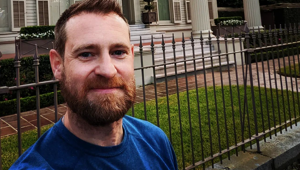
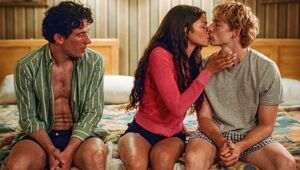



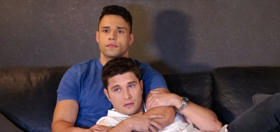







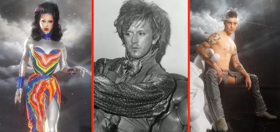
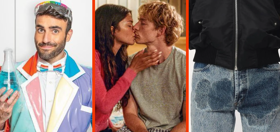


Jim
There are many like Madonna who can’t see beyond themselves.
Well, yes she’s made it into an art form
graphicjack
well, it probably wouldn’t occur to me, either. Madonna would naturally attract a lot of queers to see her at the bar… I’m sure the bar wasn’t complaining.
ScottOnEarth
Ms Carlson had a great idea to write a book about this incredible movie. She’s correct that it is an institution of its own and a universally-loved movie. Penny Marshall made such a sweet, fun, inspiring movie but, as mentioned above, she completely scrubbed it of any hints of queerness, which annoyed me when I first saw it. I always assumed that Rosie’s (awesome) character was gay and in love with Mae…..I also assumed that many of the real women baseball players were gay, whether they lived their truth or not, in those days. I did appreciate the final scene of the real ladies from the league playing ball while Madonna’s beautiful song, ‘This Used to be My Playground,’ played.